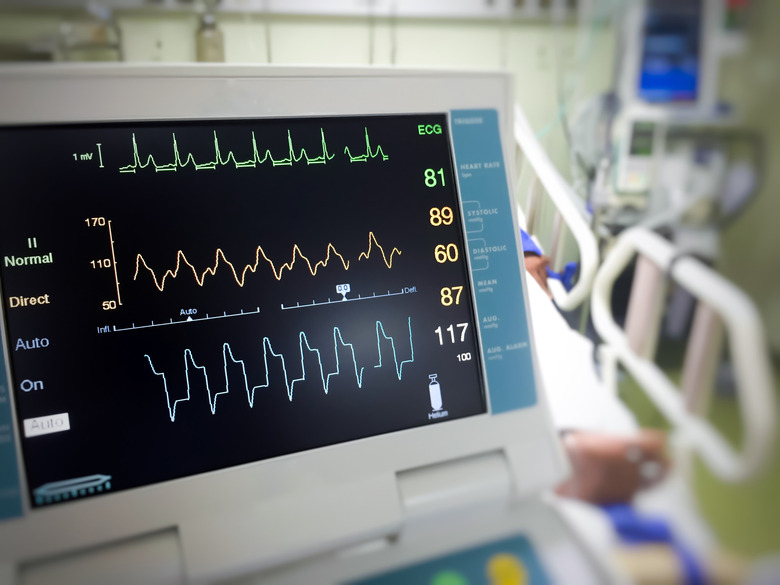How Does The Body Regulate Heart Rate?
A human heart circulates a massive volume of blood over its lifetime, enough to fill a trio of oil supertankers. The blood travels through the four heart chambers. One of these chambers, the right atrium, contains the sinus node, which acts as the pacemaker for the heart. The body's nervous system, neurotransmitters and hormones regulate the sinus node and play a huge role in how the body regulates heart rate.
Each contraction of the heart muscle regulates the flow of blood in the form of a pulse or heart rate. The pulse is measured in beats per minute. Emotional and physical stress, exercise and other physical activities affect the heart rate because the blood needs to travel faster through the body to cope with the demand for oxygen.
How the Heart Beats 24/7
How the Heart Beats 24/7
The heart doesn't stop beating because two opposing mechanisms, the sympathetic and parasympathetic nervous systems, work in sync to regulate the heart rate. The constant beating of the heart is the responsibility of the parasympathetic nervous system. When the sympathetic nervous system is activated, it causes the heart rate to speed up. The parasympathetic system brings the heart rate down again to the background level when the heart rate is high.
In a part of the brain called the medulla, a cardiac center receives information from different parts of the body and decides whether to activate the parasympathetic system to slow the heart rate or to stimulate the sympathetic system to increase the heart rate.
Chemicals Regulate Heart Beat
Chemicals Regulate Heart Beat
Neurotransmitters are substances or chemicals that activate nerve cells and allow them to communicate with other nerve and muscle cells. Norepinephrine (noradrenaline) and epinephrine (adrenaline) activate the sympathetic nervous system and cause the heart rate to speed up. Acetylcholine stimulates the parasympathetic nervous system and lowers the heart rate. Thyroid hormones, which affect almost all cells in the body, increase the heart rate. During hyperthyroidism, thyroid hormone levels are abnormally high and force the heart to beat at a rate that can harm the heart muscle.
Pump Up the Heartbeat
Pump Up the Heartbeat
Exercise and other forms of physical activity stimulate the sympathetic nervous system pathway, causing the heart to beat faster and increasing the blood supply to the brain and muscles. During physical activity, the muscles deliver more blood to the right atrial chamber of the heart, and nerve cells communicate this information to the cardiac center in the medulla. Exercise can cause the heart rate to rise from a basal heart rate of 60 to 80 beats per minute to a maximum of about 200 beats per minute, depending on an individual's genes and age. When physical activity stops, loss of pressure in the arteries is communicated to the medulla, and the parasympathetic nervous system kicks in, lowering the heart rate.
The Fight-or-Flight Response
The Fight-or-Flight Response
Emotional and physical stress can increase the heart rate. For example, watching a movie is a passive activity that can increase the heart rate of the viewers if there is a car chase. The body's fight-or-flight response activates and as a consequence the adrenal glands secrete epinephrine, a chemical that stimulates the sympathetic nervous system, raising the heart rate. Fever or injury accompanied by an increase in blood flow to peripheral tissues, such as the skin, will also increase the heart rate via the sympathetic nervous system.
Cite This Article
MLA
Blue, Marie-Luise. "How Does The Body Regulate Heart Rate?" sciencing.com, https://www.sciencing.com/body-regulate-heart-rate-19639/. 25 April 2018.
APA
Blue, Marie-Luise. (2018, April 25). How Does The Body Regulate Heart Rate?. sciencing.com. Retrieved from https://www.sciencing.com/body-regulate-heart-rate-19639/
Chicago
Blue, Marie-Luise. How Does The Body Regulate Heart Rate? last modified March 24, 2022. https://www.sciencing.com/body-regulate-heart-rate-19639/
